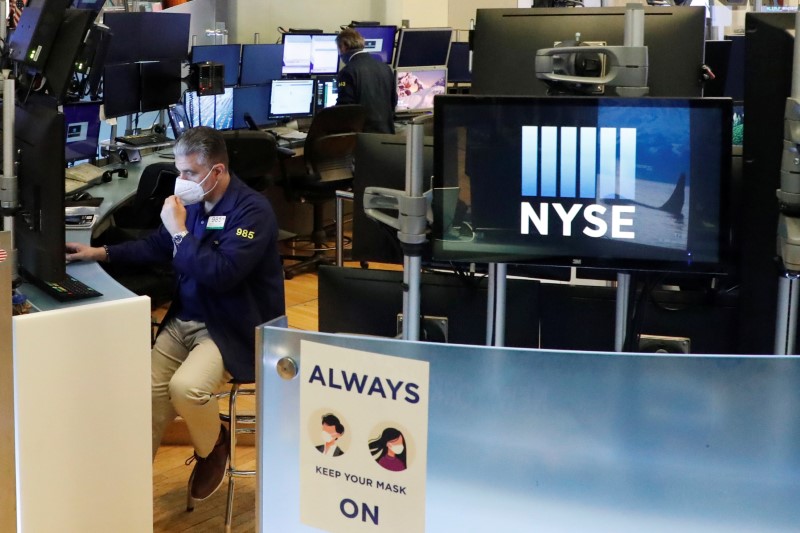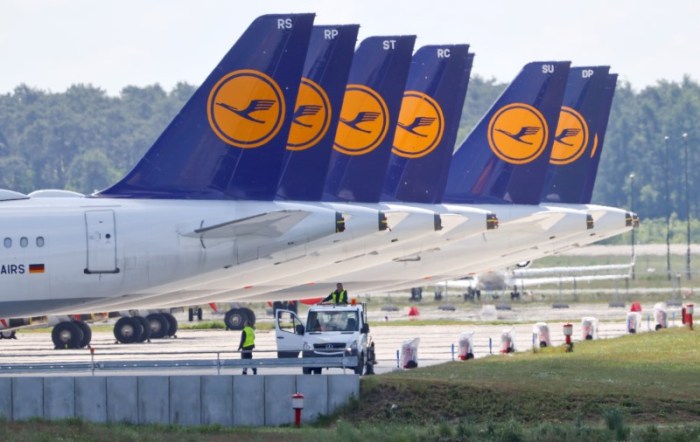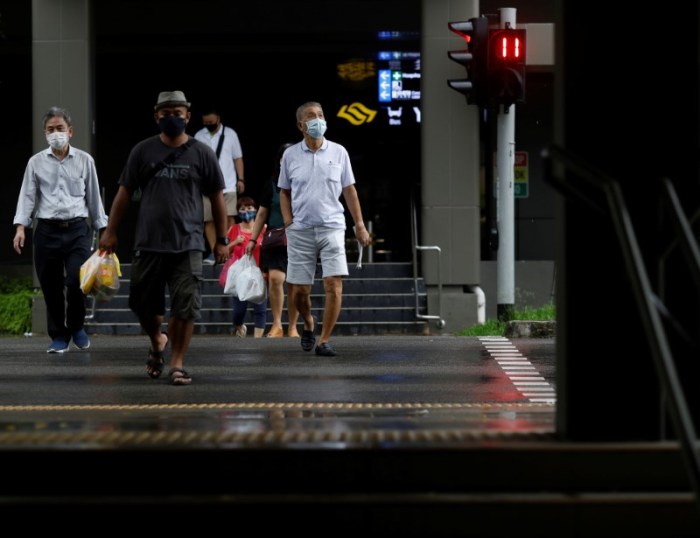NEW YORK (Reuters) – U.S. stocks posted gains on Monday as signs of U.S. economic recovery helped offset jitters over increasingly violent social unrest amid an ongoing pandemic and rising U.S.-China tensions.
All three major stock indexes began the month with gains of less than 1% on the heels of a strong May rally.
Market leaders Facebook Inc <FB.O>, Apple Inc <AAPL.O> and Amazon.com <AMZN.O> provided the biggest lift to the S&P 500 and the Nasdaq, while Boeing Co <BA.N> gave the Dow its biggest boost.
“Certainly the pace of the stock market recovery can’t continue at the pace it has been,” said Paul Nolte, portfolio manager at Kingsview Asset Management in Chicago. “I’m stunned at how well the market’s been doing.”
The White House called for “law and order” after six nights of widespread, violent demonstrations triggered by the death of George Floyd at the hands of police, even as the country reels from the economic effects of pandemic-related lockdowns.
“Most investors are saying (the protests) aren’t going to destroy the economy,” Nolte added. “It’s a roadblock but it’s not as big as a pandemic.”
The unrest has prompted retailers such as Target Corp <TGT.N> and Walmart Inc <WMT.N> to shutter a portion of their stores, while Amazon.com <AMZN.O> has scaled back deliveries.
Further weighing on sentiment, China ordered state-owned firms to halt purchases of U.S. soybeans and pork, in retaliation for President Donald Trump’s announcement that he would end special treatment for Hong Kong following China’s move to tighten security measures in the territory.
But economic data boosted investor sentiment, with the Institute for Supply Management’s (ISM) purchasing managers’ index (PMI) showing the contraction of factory activity was slowing.
A fuller picture of the economic damage wrought by pandemic-related lockdowns is expected on Friday, when the Labor Department’s jobs report is expected to show unemployment skyrocketing to 19.7%.
The Dow Jones Industrial Average <.DJI> rose 91.91 points, or 0.36%, to 25,475.02, the S&P 500 <.SPX> gained 11.42 points, or 0.38%, to 3,055.73 and the Nasdaq Composite <.IXIC> added 62.18 points, or 0.66%, to 9,552.05.
Of the 11 major sectors in the S&P 500, all but healthcare <.SPXHC> ended the session in positive territory.
Pfizer Inc <PFE.N> fell 7.1% after the drugmaker’s breast cancer treatment was deemed unlikely to meet the main goal of a late-stage study.
Gilead Sciences Inc <GILD.O> slid 3.4% following mixed results in a late-stage study of its COVID-19 drug candidate, remdesivir.
Meanwhile, rivals firms CTI Biopharma Corp <CTIC.O> and Proteostasis Therapeutics Inc <PTI.O> advanced 16.7% and 8.4%, respectively following reports that their potential COVID-19 treatments showed promise.
Shares in cosmetics company Coty Inc <COTY.N> jumped 20.9% after the appointment of Chairman Peter Harf as its new chief executive officer.
Advancing issues outnumbered declining ones on the NYSE by a 3.26-to-1 ratio; on Nasdaq, a 1.58-to-1 ratio favored advancers.
The S&P 500 posted 20 new 52-week highs and no new lows; the Nasdaq Composite recorded 98 new highs and 10 new lows.
Volume on U.S. exchanges was 9.95 billion shares, compared with the 11.30 billion average for the full session over the last 20 trading days.
(Reporting by Stephen Culp; Editing by Cynthia Osterman)




















